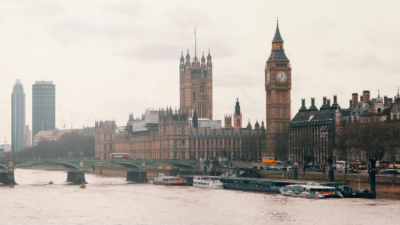Study on pub virus transmission slammed as 'out-of-date witch hunt'

The University of Stirling study looked at 29 licensed premises and was carried out last summer as pubs were allowed to reopen after the first lockdown.
Professor Niamh Fitzgerald, director of the University of Stirling’s institute for social marketing and health, led the research, funded by the Scottish Government Chief Scientist Office.
Fitzgerald said businesses experienced “commercial and practical challenges” to working within guidance, despite committing to physical modifications of sites.
Researchers found incidents of “greater concern,” at 11 venues including “customers shouting, embracing or repeatedly interacting closely with several households,” where risky behaviour was not addressed by staff.
Significant risks
Despite efforts of operators, there were “significant risks” of coronavirus transmission in “at least a substantial minority of observed bars, especially when customers were intoxicated,” Fitzgerald added.
The findings have been slammed by pub trade bodies, who point to other research showing very little incidences of coronavirus transmission in hospitality venues.
Stephen Montgomery, spokesperson for Scottish Hospitality Group (SHG) said: “It’s a farce that this report is even on the table for discussion. It is an out-of-date witch-hunt, that is wholly unreflective of our industry, and while Scottish Hospitality businesses are left to fail daily, the government has paid hundreds of thousands of pounds on a six-month old study based on a tiny number (0.17%) of Scotland’s bars and restaurants.”
Out of SHG members, which employ more than 6,000 people, there have been just 32 positive coronavirus cases among staff since July.
This means over the period from July to 26 December, staff at SHG premises worked about 1,150,000 hours, meaning just one confirmed case for every 36,000 hours worked.
Alarmist picture
UKHospitality Scotland executive director Willie Macleod said the research “paints an alarmist and almost wholly inaccurate picture” of venues’ coronavirus measures.
Macleod also questioned why the research was carried out during a period of May to August 2020 despite businesses only being allowed to reopen in mid-July in Scotland.
“We do not agree that the efforts of the researchers are anywhere near enough to accurately represent even a reasonable proportion of the sector, never mind its entirety,” he added.
The industry has invested around £90m into PPE and other coronavirus measures in Scotland, Macleod said.
“Hospitality businesses have not been responsible for Covid transmissions in any meaningful way, but they continue to bear the brunt of massively damaging restrictions,” he added. “They are too often the victims of alarming rhetoric and specious innuendo. Their future, and the livelihoods of their employees, is at risk if they are forced to shoulder any more burdens introduced on the back of misleading and misguided calls for further restrictions.”
The Scottish Licensed Trade Association (SLTA) also lambasted the claims, dubbing it as “ludicrous” to use just 29 venues out of a nation of 11,500 premises.







